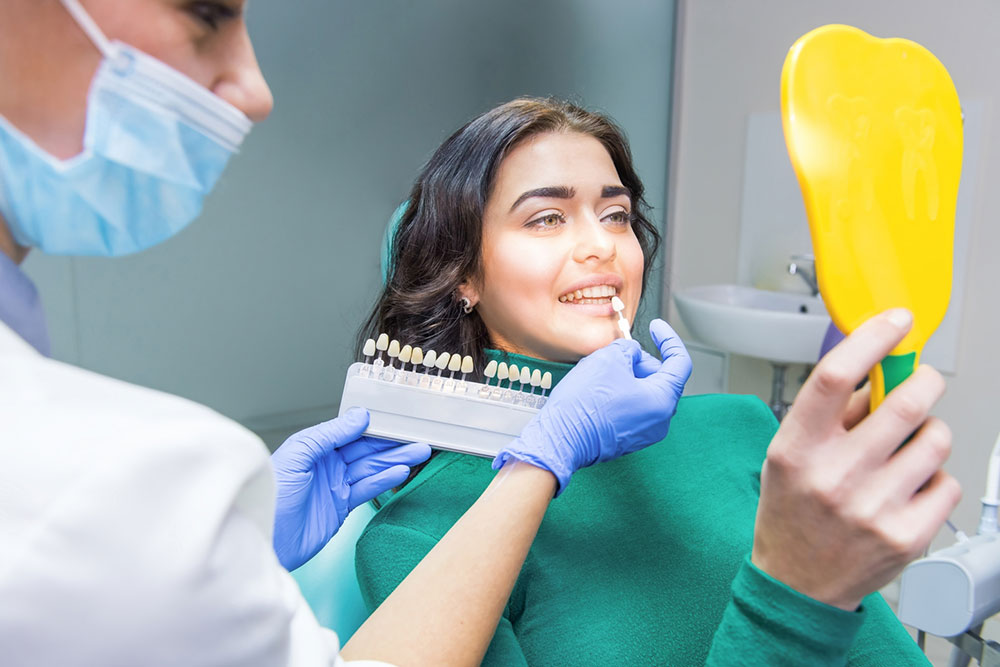8 common mistakes to avoid with dental implants

Dental implants help people improve the appearance of their teeth. They also help one chew better, speak more clearly, and do the things a regular set of healthy teeth does. But dental implants require frequent care to ensure they work as intended in the long run. Using these oral healthcare devices improperly, such as cleaning them with the wrong tools or ignoring oral hygiene, could cause them to deteriorate quickly and lead to unnecessary hassle.
Being unaware of the options
A common mistake is not researching the options before getting dental implants. One should speak to their healthcare provider, such as a dentist, to learn about the types of dental implants available, such as full-arch and single-tooth implants. Getting a partial implant might be better than replacing multiple teeth if the problem is not too severe. After assessing all their options, individuals can decide on the type they want. One could also enquire if the existing teeth could be saved with treatment. Instead of permanent implants, the dentist may sometimes recommend dentures or adhesive dental bridges that can be removed.
Not communicating healthcare history
While getting dental implants, people often hide certain healthcare information, such as ongoing treatments or past dental procedures. In doing so, they get a set of implants that do not fit their requirements in the long run. That’s why it is important to be open with the dentist and cooperate with them when they inquire about one’s dental and other health history. Accurate information helps the expert determine if the treatment is viable for the patient. By sharing a complete healthcare history, a dentist could even customize the treatment plan, predict and prevent potential risks, and suggest a safe and smooth dental implant procedure.
Incorrect care routines
Individuals usually think dental implants require less care than natural teeth, which is untrue. One must maintain the device properly to keep it in good shape. Brushing the implants twice daily with an appropriate toothbrush, flossing around the implants daily with dental floss, and rinsing the mouth with an antimicrobial mouthwash are useful for dental implant upkeep. These steps might take time and effort, but ensure the implants last long. Individuals should also talk to a dental implant specialist to get personalized advice for cleaning the implants.
Using the wrong cleaning tools
While daily maintenance is important, using the wrong tools to clean the implants may destroy them. For instance, a regular toothbrush might be too harsh for the implants and cause damage. Individuals should use a soft-bristled or gentle electric toothbrush designed for dental implants. One must also pick interdental brushes or water flossers to clean around the implant effectively. Those with dental implants should also avoid abrasive toothpaste, which could scratch the implant’s surface and wear it out faster.
Skipping regular dental appointments
One could get the highest quality implants and follow dental care routines down to a tee. Still, some issues with implants or oral health are bound to happen, and they may sometimes not be visible to the human eye. So, one must set regular dental appointments with a trusted dentist to keep the implants healthy. The professional could check the implants, detect any anomalies early, and resolve them before they worsen. Dental appointments should be scheduled at least twice a year or as the healthcare professional indicates. An individual should also use a calendar or set reminders on their phone to avoid forgetting appointments. After the visit, one should follow the dentist’s advice on additional visits or treatments if required.
Ignoring the signs of infections or problems
Complications can arise anytime, even if one routinely visits a dentist to check dental health and takes precautions. For instance, an individual might experience pain, swelling, or other unusual symptoms around the dental implant. Ignoring these signs could have devastating effects on one’s oral health. The symptoms might be the root of infections or other problems that require quick attention. So, if someone notices any unusual signs associated with the implants, they must immediately call the dental implant specialist and make an emergency appointment if needed. One must also follow the dentist’s instructions about treatments, rest, or other remedies to manage the complication.
Poor eating and hydration habits
The food one eats and the amount of water one drinks can play a crucial role in managing dental implants, similar to natural teeth. So, one must follow a balanced meal regime and stay hydrated to keep the implants healthy. Food intake should include vegetables, lean proteins, and whole grains. An individual must also avoid unhealthy foods. Skipping sugary snacks or drinks helps reduce plaque build-up around the implant, which could damage it. Drinking ample water is important to maintain overall health, including the health of the implants.
Improper use of implants
Dental implants are just an alternative to natural teeth, so improperly using them could damage their overall function. One must avoid chewing hard items like pens, ice, or candy. Some individuals might also have a habit of opening plastic packets with their teeth, which is also harmful. Instead of teeth or implants, one must use the right tools, such as scissors or bottle openers.









